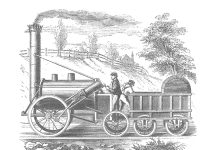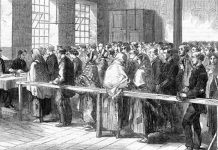“The diagnosis was a big moment for me – to be able to explain to people properly what I had gone through was a big weight off my shoulders.”
It was 1989 and Billy Garton was on his way to Manchester United’s famous training ground. The footballer’s thoughts weren’t on what he was going to do in training that day, or on whether Sir Alex Ferguson would pick him for the weekend’s first team fixture.
Billy Garton, at the height of his football career and aged just 25, was having suicidal thoughts. Now aged 54, Billy Garton outlines how even those we feel have everything in life can struggle with suicidal thoughts.
“On that day, I just couldn’t see a light at the end of the tunnel. There was no understanding or medical endorsement for what I was feeling,” he said.
“Everything I was feeling was negative and I couldn’t see where my career was going. I just had no hope.”
Unbeknown to Billy he had ME and, while he didn’t realise it at the time, was suffering from depression. He couldn’t understand why he felt so exhausted all the time as his once promising football career was disintegrating before his eyes.
Back in 1989, there was little understanding of or sympathy for ME sufferers. Referred to as ‘yuppie flu’ at the time, there was a large proportion of society that simply thought sufferers were making it up.
Billy said: “It was horrible. I was 25 and in my prime. That season I had broken into the first team and had been played in all of the first 13 of the games of the season. Then the illness started.
“It started with glandular fever and then turned into post viral syndrome and finally chronic fatigue syndrome or ME, which can be a consequence of glandular fever.
“I suffered with it for 5 years by which time my career was over. People would say to me ‘you don’t look ill’ or ‘are you feeling better today?’ But I just couldn’t do what was expected of me any more as a footballer and it was embarrassing having to go into training and hide away so I didn’t have to answer those questions any more.
“I was a local lad, Manchester United was my team and my dream was over. It was a huge thing for me.”
Eventually, Billy recovered and received a proper diagnosis. Although his dreams of stardom at Manchester United were well and truly over, Billy went on to play non-league football for Hyde United, eventually becoming player-manager. Then he started a career as a primary school teacher, ending up as deputy head at a primary school in Altrincham.
He said: “The diagnosis was a big moment for me – to be able to explain to people properly what I had gone through was a big weight off my shoulders. But back when I was suffering, I kept my cards very close to my chest, didn’t really talk about it at all – in fact I was quite guarded about it. I would go into The Cliff training ground and see the rest of lads training, everyone buzzing and happy and I felt resentment, jealousy and envy that I couldn’t play. It was a daily embarrassment and led to depression and, ultimately, to suicidal thoughts.
“It is so important to put aside your pride and share your thoughts and feelings with others at an early stage. I made the mistake of not talking about my feelings but, today, I have great respect for anyone who can reach out.”
Billy now uses his experience to help others by leading Manchester-based PlayOnPro, an organisation dedicated to helping former elite sports stars continue to work when their stellar sporting careers are over.
He supports the work of the Shining a Light on Suicide campaign to encourage people to talk openly about their feelings.
Encourage someone to talk before suicide seems their only option. Together we can help prevent suicide. Find out how at www.shiningalightonsuicide.org.uk
If you’re struggling to cope call Samaritans on 116 123
#shiningalightonsuicide







